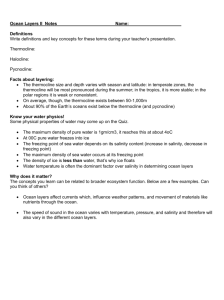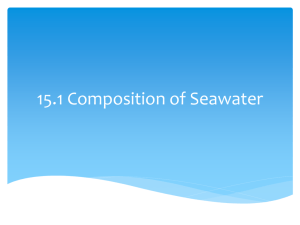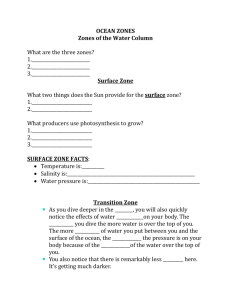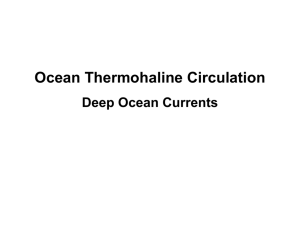The Black Sea IIIa: Variation with depth
advertisement
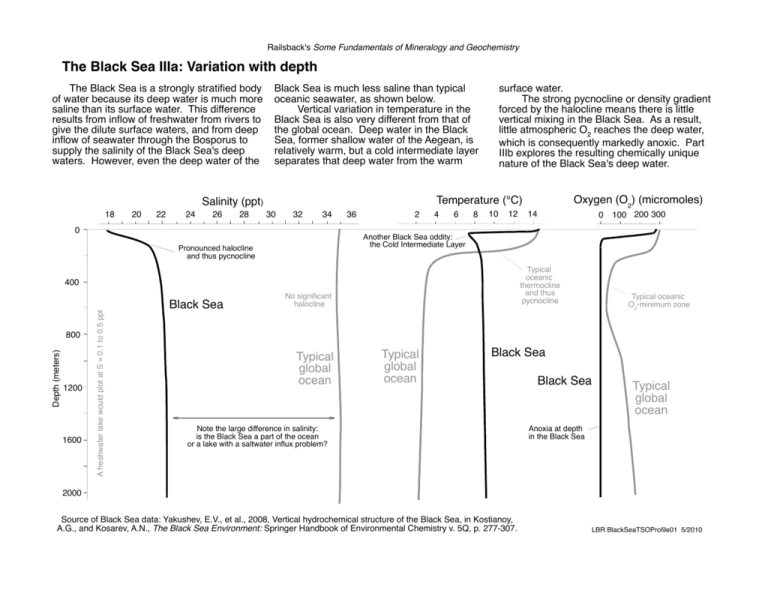
Railsback's Some Fundamentals of Mineralogy and Geochemistry The Black Sea IIIa: Variation with depth The Black Sea is a strongly stratified body of water because its deep water is much more saline than its surface water. This difference results from inflow of freshwater from rivers to give the dilute surface waters, and from deep inflow of seawater through the Bosporus to supply the salinity of the Black Sea's deep waters. However, even the deep water of the Black Sea is much less saline than typical oceanic seawater, as shown below. Vertical variation in temperature in the Black Sea is also very different from that of the global ocean. Deep water in the Black Sea, former shallow water of the Aegean, is relatively warm, but a cold intermediate layer separates that deep water from the warm 20 22 24 26 28 30 32 34 0 36 2 4 6 8 10 12 1600 A freshwater lake would plot at S = 0.1 to 0.5 ppt Depth (meters) 1200 0 Typical oceanic thermocline and thus pycnocline 400 800 14 100 200 300 Another Black Sea oddity: the Cold Intermediate Layer Pronounced halocline and thus pycnocline Black Sea Oxygen (O2) (micromoles) Temperature (°C) Salinity (ppt) 18 surface water. The strong pycnocline or density gradient forced by the halocline means there is little vertical mixing in the Black Sea. As a result, little atmospheric O2 reaches the deep water, which is consequently markedly anoxic. Part IIIb explores the resulting chemically unique nature of the Black Sea's deep water. No significant halocline Typical global ocean Typical global ocean Typical oceanic O2-minimum zone Black Sea Note the large difference in salinity: is the Black Sea a part of the ocean or a lake with a saltwater influx problem? Black Sea Typical global ocean Anoxia at depth in the Black Sea 2000 Source of Black Sea data: Yakushev, E.V., et al., 2008, Vertical hydrochemical structure of the Black Sea, in Kostianoy, A.G., and Kosarev, A.N., The Black Sea Environment: Springer Handbook of Environmental Chemistry v. 5Q, p. 277-307. LBR BlackSeaTSOProfile01 5/2010




